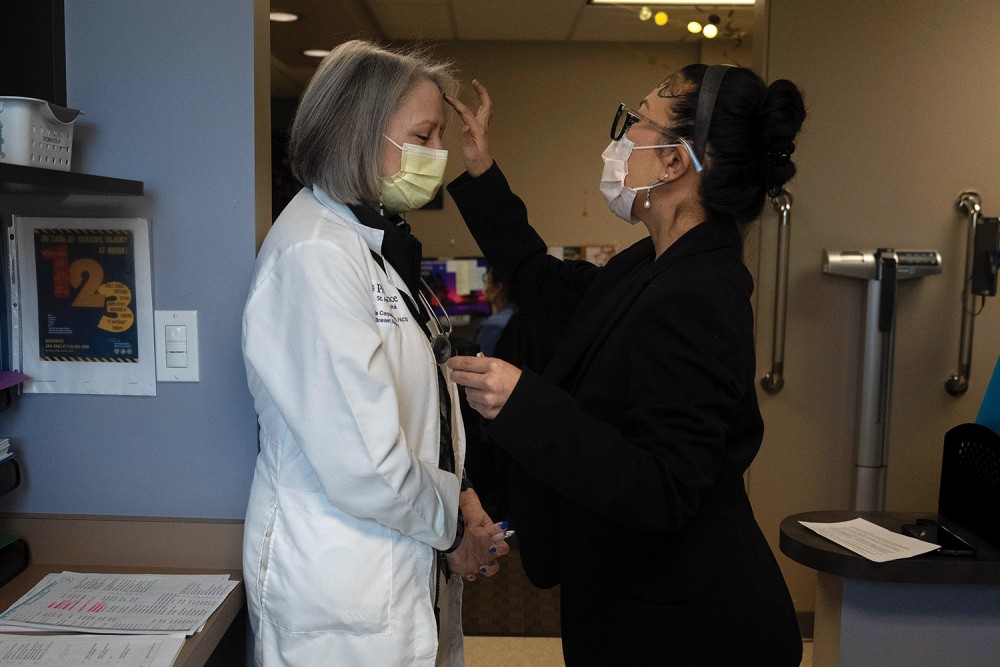We are all going to die
During my first several hours administering ashes as a hospital chaplain, I kept cringing.

Chaplain Angela Song, right, places ashes on the forehead of surgeon Michele Carpenter at Providence St. Joseph Hospital in Orange, California, in February 2023. ( AP Photo / Jae C. Hong)
Inside the vast, dimly lit chapel, I stand beside a stool that holds Q-tips, a number ticker, and a small jar of ash. The chapel is musty and dark, its stained-glass windows allowing little light to permeate the pews. It lacks a cross, bimah, or any other particular faith marker. This chapel is not a gathering place for a specific community but a refuge for the thousands of patients, family members, and staff who enter the Columbia University Irving Medical Center each day.
Nurses in navy scrubs begin to queue outside the entrance, and I ready a Q-tip in one hand and the jar of ash in the other. Then, as each person squats before my five-foot frame, I check their badge, make a black cross on their forehead, address them by name, and say, “Remember that you are dust, and to dust you shall return.”
Most of them murmur a thank-you and leave; a few walk past me to sit silently in the pews. One or two enthusiastically tell me how glad they are that the hospital offers ashes on Ash Wednesday. The mood, however, is mainly somber, and I wonder as I administer the ashes what these colleagues of mine—nurses and doctors and social workers—are thinking as they receive a sign of death on their bodies before making their way to the dying bodies they are caring for.




